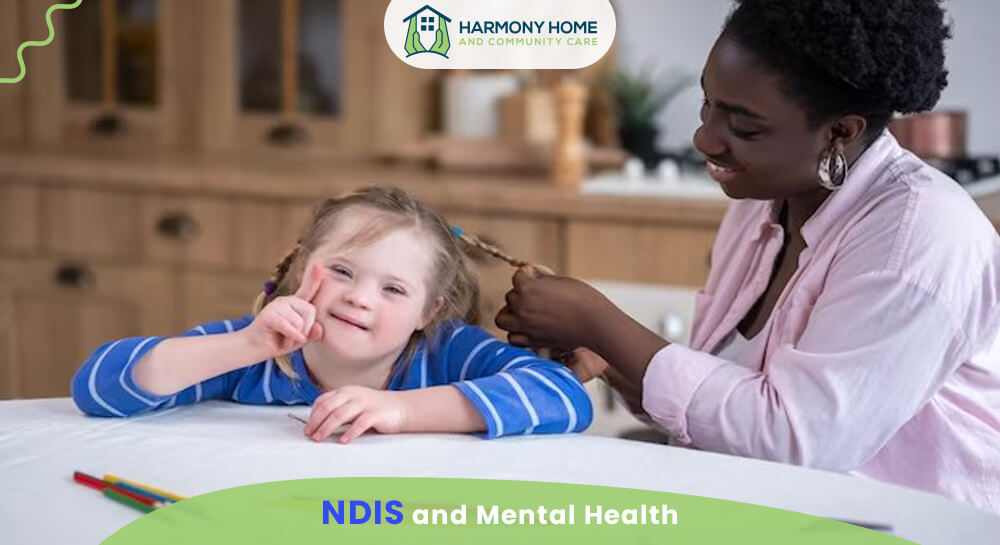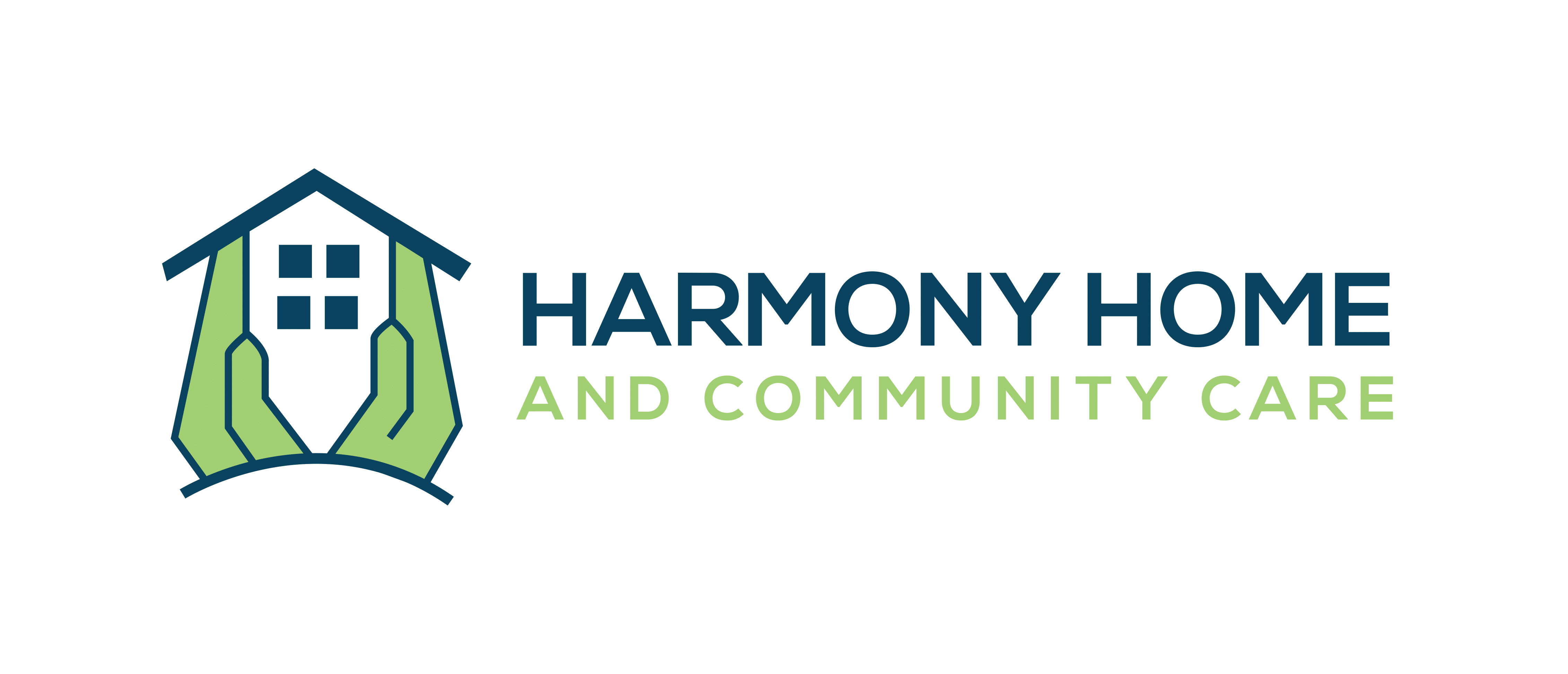Harmony Homes
November 10, 2023
NDIS and Mental Health

NDIS and Mental Health in Melbourne, Australia
When you’re suffering from NDIS mental health issues, it can be difficult to even get out of bed. It can also be difficult to know where to turn for help when you feel like your life is falling apart. For many people who experience mental health problems, the situation can seem hopeless. But that’s not true at all! There are resources available that can help, and one of them is NDIS. Harmony Home and Community Care (HHACC) provide this NDIS Mental Health blog for its visitors.
Here’s how NDIS works in Melbourne, Australia:
What is mental health? Sample NDIS Plan Mental Health
To be mentally healthy is to be in a condition of mental wellness. It means having a positive attitude towards life, experiencing emotional well-being, and having good mental health can contribute to a person’s physical health.
A person with good mental health NDIS:
- Has an optimistic view of life and future events. They can enjoy the present moment without worrying about the past or fearing the future
- Feels at ease with themselves as well as others;
- Can cope with day-to-day demands;
- Has effective coping strategies when faced with problems;
- Has satisfying relationships (family/friends).
- Sample NDIS Plan Mental Health
- NDIS Household Tasks for disable people in Australia
What does the NDIS cover for mental health?
A new approach to helping individuals with disabilities is the NDIS. It’s an insurance system that gives you funding to purchase services and supports that will help you live the life you
The NDIS covers a range of mental health conditions, including:
Anxiety disorders NDIS Mental health issues resulting from trauma or abuse Schizophrenia and similar disorders. The NDIS will also cover the costs of therapies and treatments for mental health conditions. These include: Psychological therapy, Counselling, Speech pathologists, audiologists and Occupational therapy.
Is there an Eligibility Criteria for Mental Health under the NDIS?
The NDIS services provides support to people with disabilities, no matter their age or what they need. The NDIS has a mental health package which is designed to provide support for people with an intellectual disability and/or autism who have mental health needs.
If you are interested in claiming the NDIS Mental Health Package, some eligibility criteria must be met:
- You must be aged 16 years or older; and/or;
- You have an intellectual disability; and/or;
- Your carer is caring for someone who meets the above criteria (and therefore eligible to receive the NDIS support themselves).
- Sample NDIS Plan Mental Health

Recent Posts
Categories
How can people access the NDIS and mental health?
If you have a NDIS Mental Health condition and are interested in accessing the NDIS, you must understand how the scheme works. The NDIS can be accessed by people with a disability or medical condition.
To be eligible for funding under the NDIS, your disability must be:
- Permanent (or likely to be permanent)
- Significant enough that it affects your ability to do daily activities like preparing meals or getting dressed without help from someone else.
NDIS mental Health Supports
The NDIS registered service providers, provides support for people with mental health conditions and their families. The NDIS aims to empower participants by giving them choice and control over the services they receive so that they can lead independent lives. The NDIS offers a range of support for people with mental health conditions.
Understanding NDIS Recognition of Mental Health Conditions
You may be eligible for support if you have a mental health condition, but only if it is recognized by the NDIS as an impairment.
The NDIS Mental Health recognizes the following mental health conditions:
- Autism Spectrum Disorder (ASD) and autism spectrum disorder-related conditions
- Intellectual disability (ID) – intellectual disability, including Down syndrome and Fragile X syndrome
- Conduct disorder (CD) – persistent behavior problems in children or teenagers that include aggressive conduct towards others or destruction of property
Developing Individualized Plans for Mental Health Support
The NDIS recognizes that if you have a mental health condition, such as depression or anxiety, you may need support to help manage and improve your quality of life. This can include:
- Psychotherapy (for example counselling) – this is where an NDIS-qualified professional listens to your thoughts and feelings, helps identify what’s troubling you, gives advice on how to deal with it and works out ways of improving things in future.
- Self-management strategies – these involve techniques such as problem-solving, goal setting or relaxation exercises which allow people with mental illness to cope better with their symptoms
Recognizing the Interplay of Mental and Physical Health
If you are identified as having a mental health condition, the NDIS may also be able to offer support for additional physical conditions that are related, such as pain management or movement limitations that are caused by the mental health condition.
Examples of these include:
- Depression-related pain (e.g., headache)
- Anxiety-related headaches
- Post-traumatic stress disorder-related sensory processing disorders (e.g hypersensitivity to touch)
Understanding the Impact on Daily Functioning
If your mental health condition is not recognized by the NDIS it may still affect your ability to engage in everyday tasks like going out or communicating with others – this may be considered an impairment under the scheme’s definition of disability and therefore you may be eligible for support.
For example, if you experience anxiety or depression that prevents you from attending a meeting with a friend or family member. This would be considered an inability to communicate normally daily. Similarly, if you have trouble sleeping because of nightmares about traumatic experiences, then this could be seen as having problems sleeping at night which affects your ability to function during the day (e.g. going to work).
How does the NDIS work with Mental Health?
The NDIS is a person-centered approach to supporting people with disability. The NDIS provides funding for support and services that are tailored to each individual’s needs, wants and aspirations.
Mental health is central to the lives of many people with disabilities. Mental health issues can be caused by, or may impact on a person’s ability to manage day-to-day activities such as participating socially or studying at school or university. It can also affect their relationships with friends and family members as well as how they feel about themselves – their self-esteem.
The mental health support you receive under the NDIS will depend on your circumstances including:
- What type(s) of mental illness you have
- How severe it is
- Its impact on your daily life
NDIS Funding as a Potential Source of Increased Support
People with mental health conditions may be eligible for more money through the NDIS than they were previously receiving from other sources. This is because, under the NDIS, you can get support to meet your goals and aspirations. If you have a mental health condition that makes it difficult for you to do things like work or study, this could be one of those goals.
The amount of money available depends on how much help someone needs and which type of support they choose (for example, home-based services or respite).
Eliminating the Need for Additional Assessments
The NDIS is a new way of providing support for people with a disability. It means that if you’re eligible for the NDIS, you don’t need to prove your disability anymore or have an assessment done to see whether or not you’re eligible.
If this sounds like something that could help someone in your life who has a mental health condition and could benefit from extra support, it may be worth getting them involved in the process early on so they can get ready for when it comes into effect next year.
How Can I Access Mental Health Services Under the NDIS?
The NDIS does not provide direct access to mental health services. You will need to work with your NDIS planner and/or case manager to find the best way for you to access these services.
Can I Use My NDIS Plan to Pay for Support Services?
If you’re eligible for the NDIS, and your plan includes support services, then you can use your plan to pay for any of these things.
- Speech pathology services
- Occupational therapy
- Psychology services
If your plan doesn’t include these types of support, it’s possible that they will be added in the future or that you could ask for an amendment to add them now but it’s up to each person’s provider team member what happens next.
Can I Use My NDIS Plan to Pay for Treatment at a Private Hospital or Clinic?
You may be able to use your NDIS plan to pay for treatment at a private hospital or clinic. If you want to know if this is an option for you, contact your NDIS planner and ask them.
If it turns out that paying for private health care is an option for you, some things need to happen before this can happen:
- You’ll need approval from both the NDIS and the Department of Human Services (DHS). Your planner should help with this process by contacting both organizations on your behalf
- The service provider must be approved by DHS
- The service provider must also be registered with Medicare Australia so they can bill Medicare directly rather than billing through their own practice accounts system
NDIS Support for Mental Health Services
The NDIS may be able to help you pay for mental health services.
The NDIS is a new way of providing support to people with disabilities, such as those with mental illness. It provides funding to cover the costs of daily living and social participation. If you are eligible for the NDIS, it can help pay for some services that aren’t funded by Medicare or other government programs. These include for Sample NDIS Plan Mental Health:
- Counselling
- Psychotherapy
- Sample NDIS Plan Mental Health
I think it’s important that people with mental health issues get the help they need. The NDIS is a great way for them to do this because it allows them to access services quickly and easily without having to worry about paying for them.
Related Articles:
sample NDIS plan mental health | NDIS and mental health | NDIS Mental Health | NDIS Mental Health Service Providers


